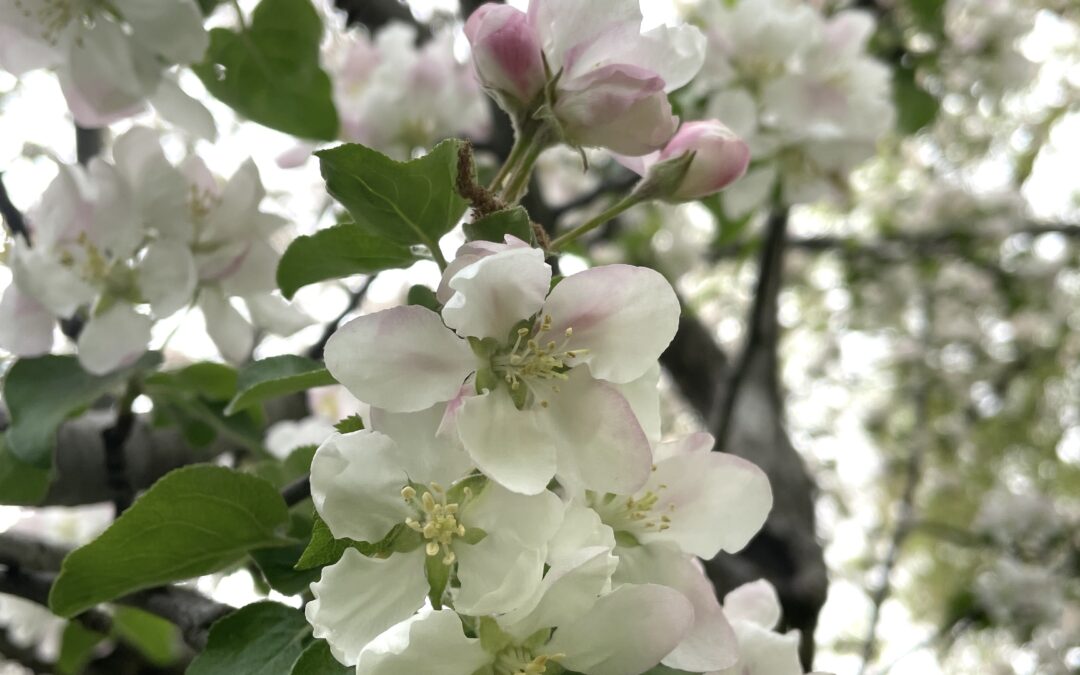I recently came across a beautiful monk from an Orthodox Christian monastery in Ireland. He receives many letters from people throughout the world, who share with him their problems, asking for his insight and any kind guidance that he may be able to offer them. One of the letters that the monk had received was from a woman who shared that she was considering leaving her husband after 10 years of marriage. In her letter she explained how he is not a bad person and there hasn’t been any abuse in any shape or form; she said that he was supportive and would care for her; and yet she wasn’t feeling passionate nor excited about him anymore, she wasn’t feeling happy, and more and more each day she’d wake up feeling closer and closer to filing for divorce. She shared how she would spend many months writing lists on pros and cons about why or why not to leave. She longed for the old days when things would be different between them, and how now things are just monotonous, which makes her unfulfilled.
In his beautiful and deeply empathic way, the monk started his reply by stating that he is not married, so he can’t directly speak on this from personal experience, though she can always reach out to the priests, who are married, and also the priestesses or the wives of the priests in the church if she needs a woman’s insight also. But – he said that what he can offer is his experience of being a monk, as entering a monastery is in many ways similar to entering a marriage – because both are about entering into a relationship. Both are considered a “sacrament”, and are ways in which we enter into a relationship for the purposes of developing the inner self – to expand the heart and grow the soul; to peel the layers of ourselves through devotion and uncover our true essence, thereby coming close to our loving heart and thus, to God.
For years before actually being initiated into being a monk, he went through training and teachings, and his teacher would always ask him, again and again, every few months: “Are you sure that this is what you want?” At the time he thought, well of course I do, I feel like I always have anyway. The teacher would still encourage him to take his time and make his decision wisely. Now that he’s been a monk for over 17 years, he shared how he’s had many moments in which he has felt unhappy, sad, even depressed sometimes. He shared how he’s had times of doubting if he had made the right decision, wondering if he should leave the monastery, wondering “what is the purpose anyway”, wondering if he is even connected to God or his beliefs anymore. And while all of these questions have pointed him back, inward, towards his heart for answers, it was still, and still is, sometimes difficult to gain clarity or suddenly feel ecstatic happiness.
But spirituality is not for the faint of heart.
Just like real love too is not for the faint of heart.
In the same way, a marriage may not always feel happy – but it is a vow we’ve made of free will, a vow made not only with human lips but with our souls also to merge two dharmic paths into one. Love changes its shapes and forms, speeds and movements through the years. It is not there to make us happy always, it is not there to entertain us, it there to shift us, awaken us and transform us. Love doesn’t “hurt”, it is people who hurt one another; and yet love is necessarily easy or without its challenges because we all have resistances within ourselves and space for more deepening through self-awareness and self-understanding. Love will sometimes be more quiet, or ask us to be more attentive to see it; yet it is there, and it is still love, just expressing itself differently allowing us the opportunity for a deepening. Sometimes love is a gesture of our partner washing the dishes because we are tired; sometimes it is them switching on the channel of a movie we want to watch even if they didn’t want to watch it themselves. Sometimes love is “are you okay” and the ability to see the worries behind the smile of our partner.
The monk brought the woman’s attention to her part of the letter where she mentioned “the lists of the pros and cons”. He shared how this is not the best of ideas and that through doing that she is actually trying to resurrect something that no longer is. She wasn’t that woman that she was 10 years ago; she is now different, not better or worse, but just wiser, grown. The parts that were no longer are; and in that acceptance is the humility that needs to be treasured. There is a certain level of sadness in that growth or time passed, because we realize how what was no longer is; and how perhaps some dreams of us never became. But there are new things now and new possibilities. To constantly need to resurrect something that is gone, will only perpetuate our troubles and inner (and outer) conflicts.
To make a true decision of heart, we need to be grounded in the moment and this is how we will discern whether this is something we actually want or not for our life anymore. If the focus remains on the past, or on a list, we are essentially not tuning into our heart but trying to rationalize something or validate something – and the problem with such “rationalizing” is that we are using our conditioned mind and thought patterns, some of which may be outdated or no longer for our highest benefit. We are also paving a road to disappointment because of course we’ll always have things that annoy us and bother us, and the more bothered we’ll be by focusing on that – sometimes making a big deal out of nothing – rather than trying to find a common ground and re-connect by mutual effort and open honest communication.
Marriage as a Sacrament.
And this all brings me to marriage as a sacrament. In its essence, sacrament means a rite of passage, or an initiation by our own choice and free will, through which a sacred or spiritual power is believed to be transmitted through the channel of divine grace. This means: when we enter whether a marriage or a monastery, we enter into a relationship, which is a God’s gift to us, towards self-development. It is a path of devotion – and this is the only path which can allow us to come closer to our heart. And it is the heart that is the initiatory pathway towards higher consciousness.
If we can sum up the spiritual atmosphere of the mid-20th century in one phrase it’d be that: spiritual fruits are desired and expected to come to us without the spiritual labour necessary of us to attain them.
And this mindset of the collective consciousness has translated into all areas of our life, including relationships and work also: we expect something while giving nothing; we take without giving back; we have spoiled ourselves to free knowledge online without the time and effort necessary to earn it; and we swipe human faces on apps reprogramming our minds to think it is always greener on the other side. We have forgotten that love and intimacy require daily efforts and a sense of deep reverence.
Devotion is not an easy thing. Think of having your own business: how many days you wake up and not feel motivated or “divinely inspired” and yet you chop wood, carry water. Step by step, little by little, and we awaken patience, responsibility, self-compassion, and trust in something bigger than us. We begin to see that it is not just compromise in a marriage that needs to breathe, there is sacrifice. There is selflessness. There is effort. And there is occasional sadness of the parts of us that no longer are, in us and in our partner; the dreams that never became; and the dreams that may never be. In devotion, trust awakens, patience awakens. And patience is the mark of truest love; patience is what opens the soul of matter.
Whether we choose a monastery, a marriage, a relationship, a garden, a business – these are all pathways demanding devotion for the purposes of spiritual development. It is the cross we choose to carry in this life – and it demands a certain level of being of service to others. That doesn’t mean we have to suffer, and be miserable, and of course, if this is causing you abuse or harm in any way, you need to leave immediately. But for all of us, no matter how spiritual or self-developed we are, there will always be moments when we’ll find ourselves in the dense forests – unknowing, doubtful, wondering what is the purpose of this all? And that’s okay. We were never meant to know it all anyway. There are cycles of the land; just as there are cycles of the physical, emotional and spiritual wild lands within us – the landscapes that we are. Inside ourselves, we have many landscapes, climates, temperatures, cities and countries, all waiting to be explored.
So sometimes, there will be an iceberg; sometimes there will be a cave; sometimes there will be a foreign country with a language that needs to be learned to understand. And sometimes there will be mountains or unpaved off-the-roads pathways for which we’ll need to put on our red hiking boots to explore. We’ll need our inner lantern to guide our way forward. It will uncomfortable, and it will take its sweet time to see to the other side with the Sun shining warming our skin. But as long as we are of the loving heart, we will see it – because it is always there. Then. Now. Always. This is the sacred heart – always beating and shining with love, despite the thorns, despite the conditions and limitations of our human mind.
For personal readings with me, you are welcome to browse through my Offerings.
Cover photograph by me.

For more of my writings, browse through my Art of Love.
If you wish to support me and my work, you may do so by sharing it or donate here. For personal readings with me, you may visit my Offerings.
Your support means so much to me! Thank you wholeheartedly!




